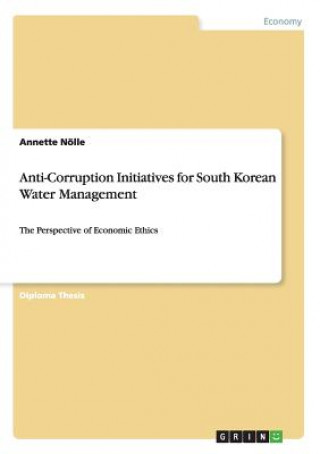
Kód: 01669085
Anti-Corruption Initiatives for South Korean Water Management
Autor Annette Nölle
Diploma Thesis from the year 2010 in the subject Business economics - Business Ethics, Corporate Ethics, grade: 1,3, Martin Luther University, language: English, abstract: Corruption, defined as the abuse of entrusted power for pr ... celý popis
- Jazyk:
 Angličtina
Angličtina - Vazba: Brožovaná
- Počet stran: 68
Nakladatelství: Grin Publishing, 2011
- Více informací o knize

Mohlo by se vám také líbit
Dárkový poukaz: Radost zaručena
- Darujte poukaz v libovolné hodnotě a my se postaráme o zbytek.
- Poukaz se vztahuje na celou naši nabídku.
- Elektronický poukaz vytisknete z e-mailu a můžete ihned darovat.
- Platnost poukazu je 12 měsíců od data vystavení.
Více informací o knize Anti-Corruption Initiatives for South Korean Water Management
Nákupem získáte 149 bodů
 Anotace knihy
Anotace knihy
Diploma Thesis from the year 2010 in the subject Business economics - Business Ethics, Corporate Ethics, grade: 1,3, Martin Luther University, language: English, abstract: Corruption, defined as the abuse of entrusted power for private gain, has been a recurrent theme throughout South Korean (hereinafter referred to as Korean) history. Since Korea joined the Organization for Economic Cooperation and Development (OECD) in 1996, it has continuously been ranked among the lowest 20th percentile in Transparency International s Corruption Perceptions Index (CPI) barometer. The term of corruption primarily refers to the public sector. Therefore, Shleifer and Vishny offer a more narrow definition of corruption as being the sale by government officials of government property for personal gain. Corruption occurs at the interface between the public sector and the private one, whenever a public official is endowed with the discretionary power over the distribution of goods and services. The consequences of corruption are multifarious, including the lowering of investment and economic growth, a loss of tax revenue, adverse budgetary consequences, for instance by reducing the level of tax collection, and a reduction of the effectiveness of aid flows in developing countries and distortion of the composition of government expenditures. One sector that is known to be very susceptible to corruption is the construction sector, covering major public investment projects. The execution of these projects is usually contracted out by the government. Rent-seeking is among the key components of any corrupt act and large infrastructure projects are characterized by huge size and high capital intensity, making corruption in this sector more profitable than in any other sectors. In the following paper, the problem of corruption in major infrastructure projects will be analyzed with a special focus on the water sector. Chapter two offers an analysis of the problem of corruption using two economic approaches, the principal agent theory and a game theoretical analysis of the problem and its solutions. Special focus will be led onto the problem of corruption in major infrastructure projects, as well as the introduction of the integrity pact as a device to combat corruption in this sector. Chapter three presents a case study of the Korean water resource management sector and its efforts to combat and prevent corruption.The last chapter evaluates the initiatives taken by Korean society to combat and prevent corruption in the water management sector. It draws conclusions upon this evaluation, recommendation are being made.
 Parametry knihy
Parametry knihy
Zařazení knihy Knihy v angličtině Economics, finance, business & management Business & management
1489 Kč
- Plný název: Anti-Corruption Initiatives for South Korean Water Management
- Podnázev: The Perspective of Economic Ethics
- Autor: Annette Nölle
- Jazyk:
 Angličtina
Angličtina - Vazba: Brožovaná
- Počet stran: 68
- EAN: 9783656021810
- ISBN: 3656021813
- ID: 01669085
- Nakladatelství: Grin Publishing
- Hmotnost: 100 g
- Rozměry: 210 × 148 × 4 mm
- Datum vydání: 07. October 2011
Oblíbené z jiného soudku
-

Personal MBA
357 Kč -
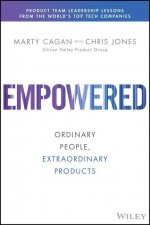
EMPOWERED - Ordinary People, Extraordinary Products
611 Kč -

Transformed: Moving to the Product Operating Model
629 Kč -

Toyota Way, Second Edition: 14 Management Principles from the World's Greatest Manufacturer
704 Kč -

The Millionaire Real Estate Investor
525 Kč -

The Personal MBA 10th Anniversary Edition
429 Kč -

Playing with FIRE (Financial Independence Retire Early)
384 Kč -
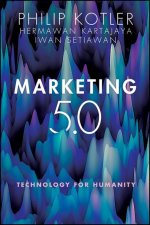
Marketing 5.0 - Technology for Humanity
575 Kč -

Thinking In Bets
421 Kč -

The Power of Full Engagement
347 Kč -

Motive - Why So Many Leaders Abdicate Their Most Important Responsibilities
498 Kč -
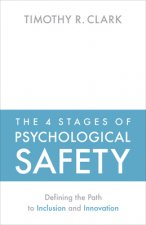
4 Stages of Psychological Safety
466 Kč -

Official TOEFL iBT Tests Volume 2, Third Edition
970 Kč -

Data Privacy and GDPR Handbook
1783 Kč -

Official Guide to the TOEFL iBT Test, Sixth Edition
810 Kč -

The Hard Thing about Hard Things
597 Kč -

Karmic Management
364 Kč -

Good To Great
652 Kč -

Slight Edge
422 Kč -
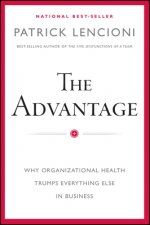
The Advantage
597 Kč -

The Goal
708 Kč -

Business Model Generation - A Handbook for Visionaries Game Changers and Challengers
702 Kč -

Fundamentals of Corporate Finance
1971 Kč -

Crucial Conversations: Tools for Talking When Stakes are High, Third Edition
677 Kč -

Millionaire Real Estate Agent
543 Kč -

Business Adventures
378 Kč -

Onward
369 Kč -

Smart Women Finish Rich
390 Kč -

Thinkertoys
465 Kč -

Ready, Fire, Aim - Zero to GBP100 Million in No Time Flat
812 Kč -

Free to Choose
354 Kč -

Secrets of Power Negotiating - 25th Anniversary Edition
516 Kč -

ISE Fundamentals of Corporate Finance
1914 Kč -

Elite Sales Strategies: A Guide to Being One-Up, C reating Value, and Becoming Truly Consultative
542 Kč -

Corporate Finance
1977 Kč -
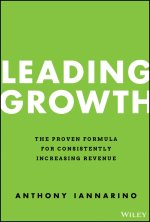
Leading Growth - The Proven Formula for Consistently Increasing Revenue
540 Kč -

Market Leader 3rd Edition Intermediate Coursebook & DVD-Rom Pack
823 Kč -

Coach's Guide to Reflective Inquiry
636 Kč -
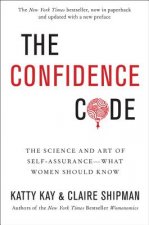
Confidence Code
357 Kč -

Management
673 Kč -

You Can Negotiate Anything
348 Kč -

Design Thinking Toolbox - A Guide to Mastering the Most Popular and Valuable Innovation Methods
692 Kč -

The Big Book of Dashboards
983 Kč -

Death by Meeting - A Leadership Fable About Solving the Most Painful Problem in Business
520 Kč -

Business Made Simple
439 Kč -

Ride of a Lifetime
374 Kč -

Testing Business Ideas - A Field Guide for Rapid Experimentation
690 Kč -
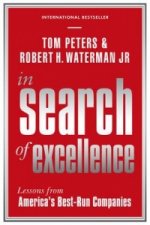
In Search Of Excellence
302 Kč -

Outward Mindset
356 Kč
Osobní odběr Praha, Brno a 12903 dalších
Copyright ©2008-24 nejlevnejsi-knihy.cz Všechna práva vyhrazenaSoukromíCookies






 Vrácení do měsíce
Vrácení do měsíce 571 999 099 (8-15.30h)
571 999 099 (8-15.30h)